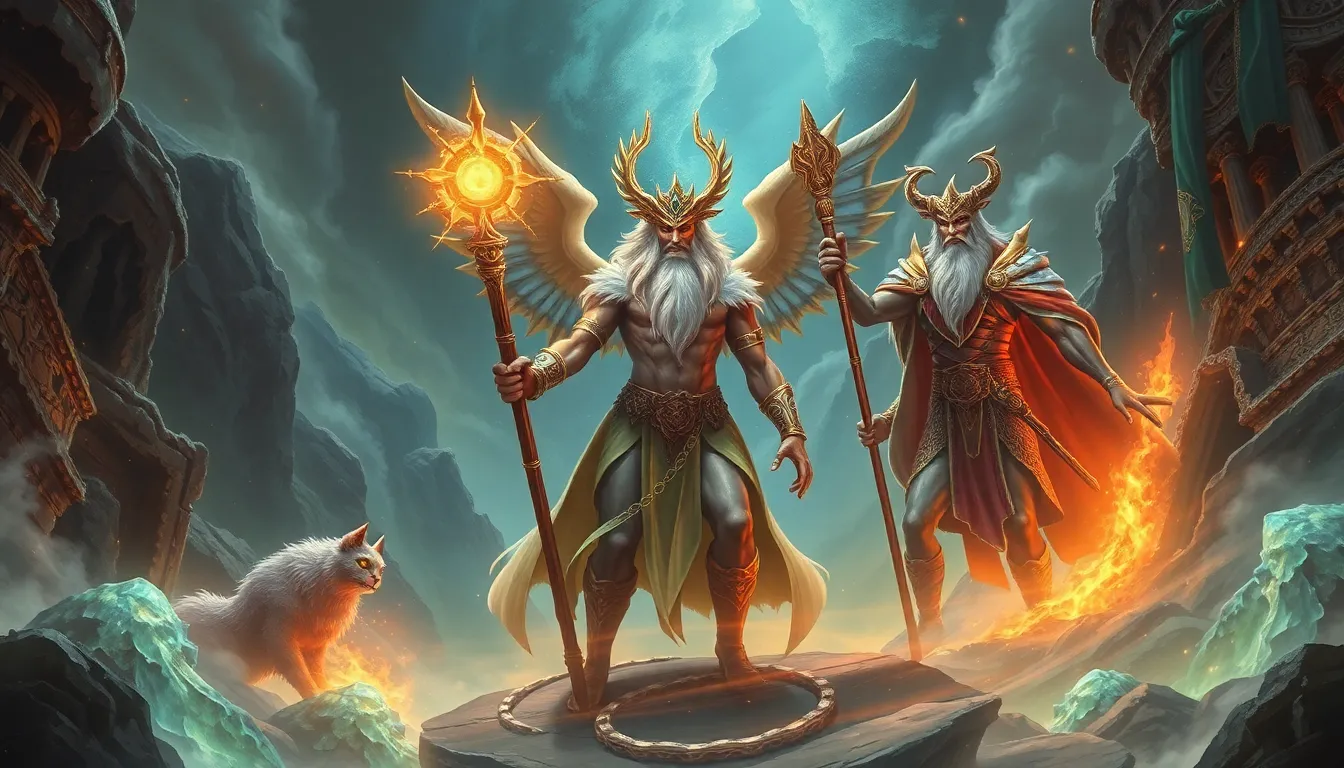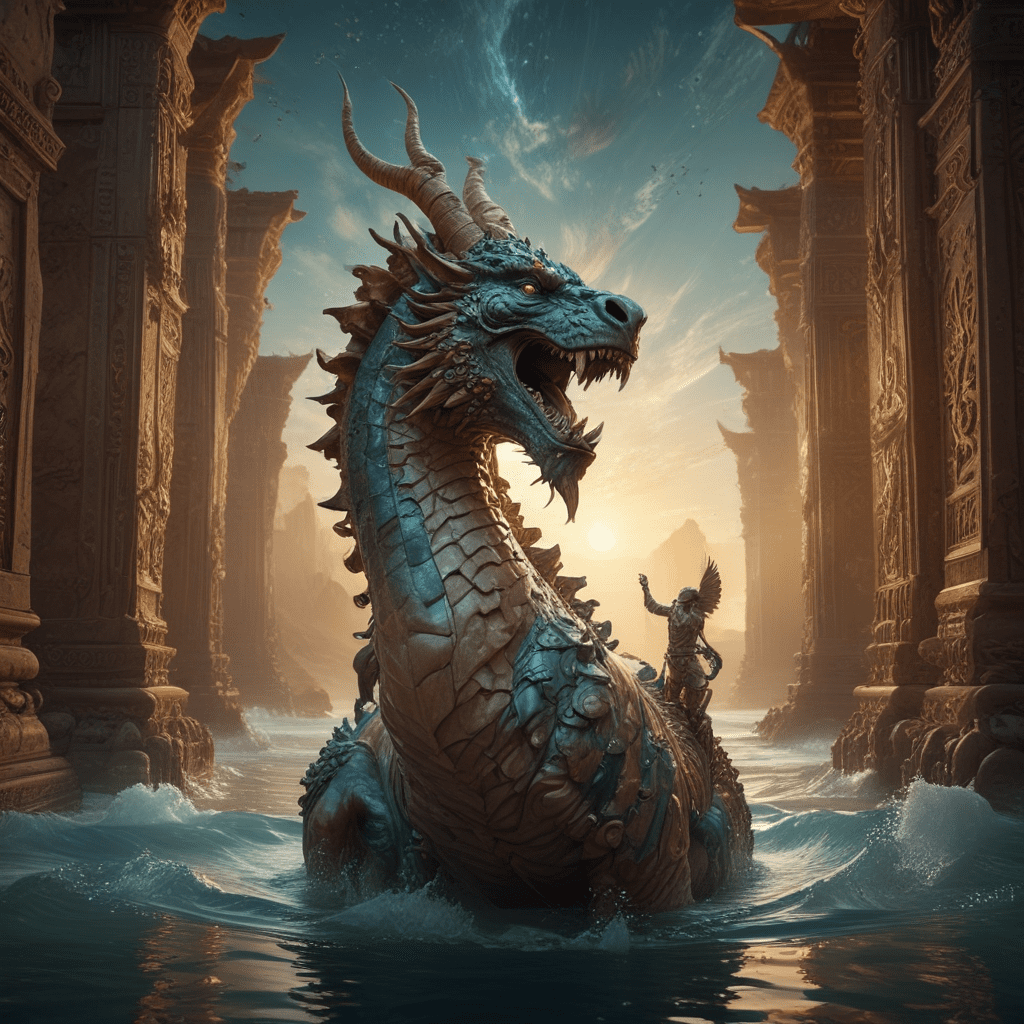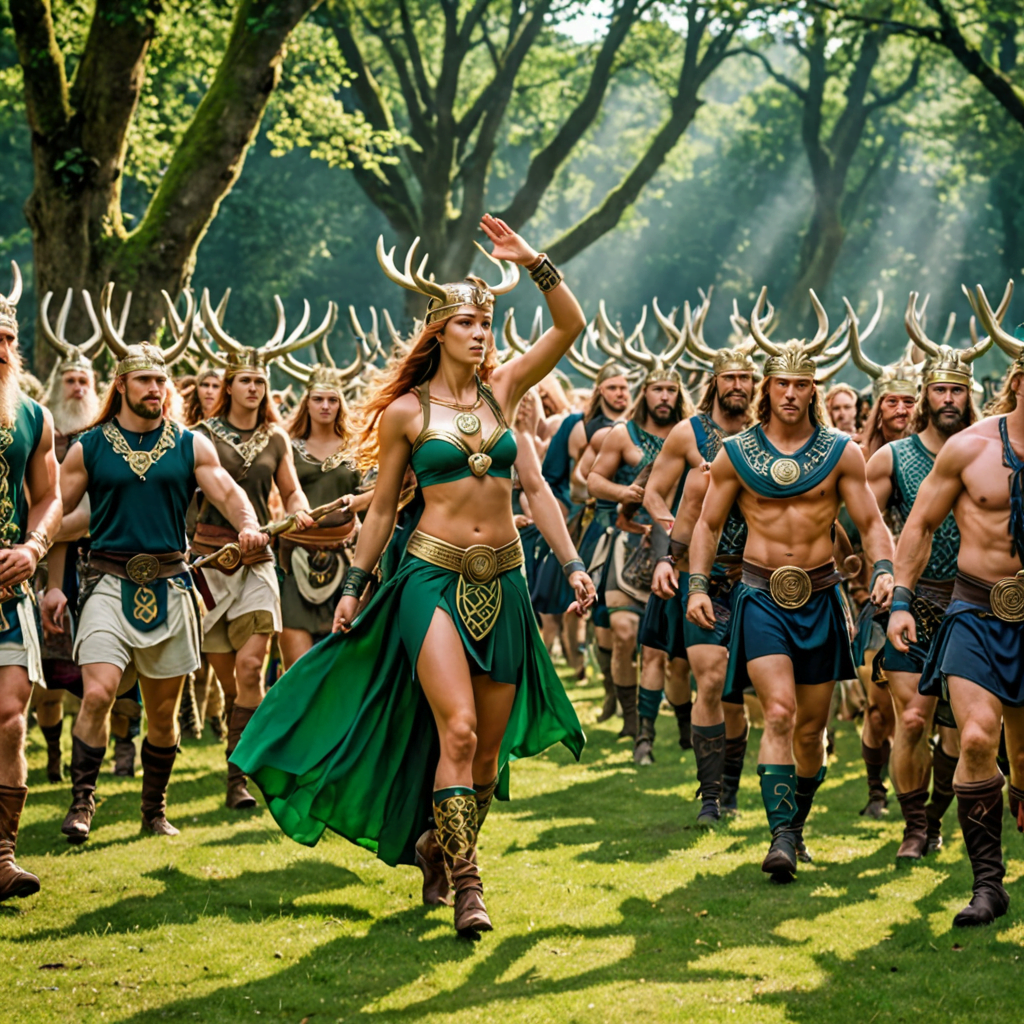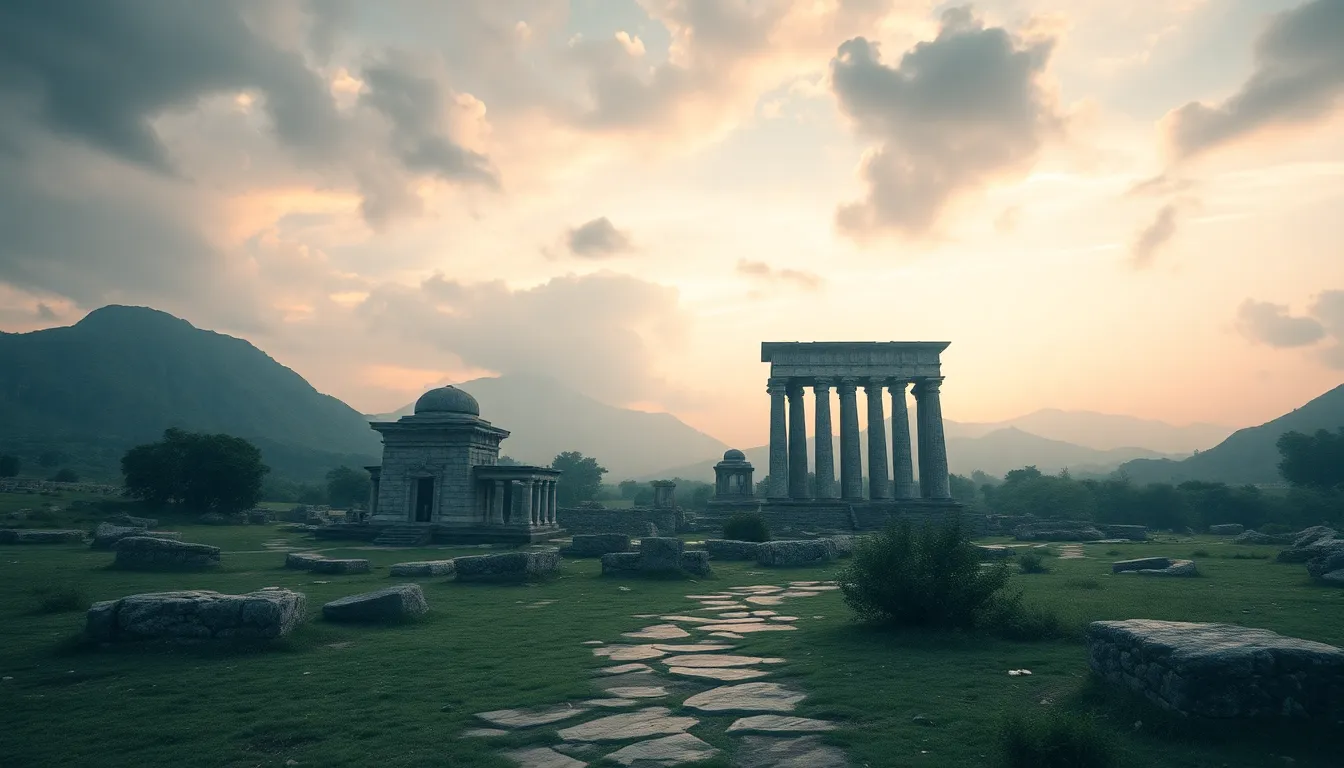Ancient Deities and Their Epic Quests: Myths of Adventure
I. Introduction to Ancient Deities
Ancient deities are powerful beings revered in various cultures throughout history, embodying the values, fears, and aspirations of the societies that worshipped them. These gods and goddesses often represented natural elements, human traits, and abstract concepts, serving as conduits for understanding the world.
Mythological narratives frequently revolve around common themes such as creation, destruction, love, and the struggle between good and evil. These stories were not merely entertainment; they provided moral lessons, cultural identity, and explanations for the unknown.
This article explores the epic quests undertaken by ancient deities, highlighting how these adventures shaped cultural narratives and continue to resonate in modern storytelling.
II. The Heroic Archetype: Characteristics of Ancient Deities
The heroic archetype is a significant element in the stories of ancient deities. These characters often exhibit traits such as:
- Courage: Facing formidable challenges without fear.
- Strength: Both physical and moral, allowing them to overcome obstacles.
- Wisdom: Utilizing knowledge to navigate complex situations.
Ancient deities often embody a duality of divine and human attributes, making them relatable to mortals. For example, Hercules, despite his godlike strength, faced personal struggles and flaws. Similarly, Thor, the Norse god of thunder, displayed both bravery and impulsiveness. Anubis, the Egyptian god associated with the afterlife, exhibited compassion and guardianship, reinforcing the human connection to the divine.
III. The Role of Adventure in Mythology
Adventure, in the context of mythology, refers to the journeys and quests undertaken by deities and heroes, often filled with trials and tribulations. These adventures are essential to the narrative structure for several reasons:
- Character Development: Quests reveal the true nature of characters, showcasing their growth and transformation.
- Conflict and Resolution: Adventures create tension through conflicts that must be resolved, leading to catharsis for the audience.
- Thematic Exploration: Quests allow for the exploration of profound themes such as loyalty, sacrifice, and the pursuit of knowledge.
IV. Iconic Quests of Greek Deities
A. The Twelve Labors of Hercules
One of the most famous quests in Greek mythology is the Twelve Labors of Hercules, undertaken as penance for a crime. Each labor represents a formidable challenge:
- Slay the Nemean Lion.
- Slay the nine-headed Lernaean Hydra.
- Capture the Golden Hind of Artemis.
- Capture the Erymanthian Boar.
- Clean the Augean Stables in a single day.
- Slay the Stymphalian Birds.
- Capture the Cretan Bull.
- Steal the Mares of Diomedes.
- Obtain the Girdle of Hippolyta, Queen of the Amazons.
- Capture the Cattle of Geryon.
- Steal the Apples of the Hesperides.
- Bring Cerberus, the three-headed dog, from the underworld.
Each labor symbolizes a moral lesson, from the importance of courage to the necessity of humility, reinforcing the notion that heroism is as much about character as it is about strength.
B. Odysseus and the Journey Home
Another iconic Greek quest is that of Odysseus in Homer’s “The Odyssey.” His journey home after the Trojan War is fraught with challenges, including:
- Encounters with mythical creatures like the Cyclops and Sirens.
- Facing the wrath of Poseidon.
- Struggles against temptation and distraction, such as the allure of Circe’s island.
The themes of loyalty and perseverance are prevalent throughout his journey, highlighting the importance of faithfulness to one’s home and family.
V. Norse Mythology: Epic Quests and Cosmic Battles
A. Thor’s Journey to Retrieve His Hammer
In Norse mythology, Thor, the god of thunder, embarks on a quest to retrieve his stolen hammer, Mjölnir. This journey involves various characters, such as Loki, who plays a crucial role in the narrative. The quest emphasizes themes of strength, loyalty, and the importance of community in the face of adversity.
The implications of this quest extend to Norse cosmology, illustrating the balance between chaos and order in the universe.
B. Odin’s Quest for Wisdom and Sacrifice
Odin, the Allfather, is known for his relentless pursuit of knowledge. His quest for wisdom often involves great sacrifice, such as hanging from Yggdrasil, the World Tree, for nine days. This act symbolizes the lengths to which one must go to acquire true understanding.
The themes of fate and prophecy are woven into Odin’s journeys, demonstrating the interconnectedness of knowledge and destiny in Norse belief.
VI. Egyptian Deities and Their Legendary Adventures
A. Osiris and the Quest for Resurrection
In Egyptian mythology, the tale of Osiris centers around betrayal and resurrection. After being murdered by his brother Set, Osiris embarks on a journey through the afterlife, symbolizing hope and renewal. This narrative profoundly impacts Egyptian beliefs about the afterlife, emphasizing the importance of morality and justice.
B. Ra’s Journey Through the Underworld
Ra, the sun god, undertakes a daily journey through the underworld, battling the forces of darkness. This journey symbolizes the eternal struggle between light and darkness, highlighting the significance of renewal and rebirth in Egyptian culture.
VII. The Influence of Ancient Quests on Modern Storytelling
Ancient myths continue to inspire contemporary literature and film, reflecting their timeless nature. Many modern adaptations draw from these mythological quests, reinterpreting themes of heroism and adventure for new audiences.
Examples include:
- The “Percy Jackson & The Olympians” series, which revitalizes Greek mythology for a younger audience.
- The Marvel Cinematic Universe’s portrayal of Thor, blending traditional myth with modern superhero narratives.
The enduring relevance of these stories lies in their ability to address universal human experiences, making them relatable across cultures and generations.
VIII. Cross-Cultural Comparisons of Divine Quests
A. Similarities and Differences Among Various Mythologies
While ancient myths from different cultures often feature unique elements, they share common themes of heroism and adventure. For example, quests for knowledge, battles against chaos, and the struggle for justice appear in various forms across cultures.
B. Themes of Heroism and Adventure Across Cultures
Heroic journeys often involve tests of character, the search for identity, and the confrontation of external and internal conflicts. These narratives resonate with human experiences, emphasizing courage, sacrifice, and resilience.
C. The Universal Appeal of Divine Quests
The universal appeal of divine quests lies in their exploration of fundamental human questions and experiences, making them timeless narratives that continue to captivate audiences today.
IX. The Legacy of Ancient Deities and Their Quests
The legacy of ancient deities and their epic quests is evident in modern storytelling, art, and culture. These myths offer insights into the values and beliefs of ancient civilizations, serving as a bridge between the past and present. As we continue to explore these narratives, their lessons remain relevant, reminding us of the enduring power of adventure and the human spirit.




